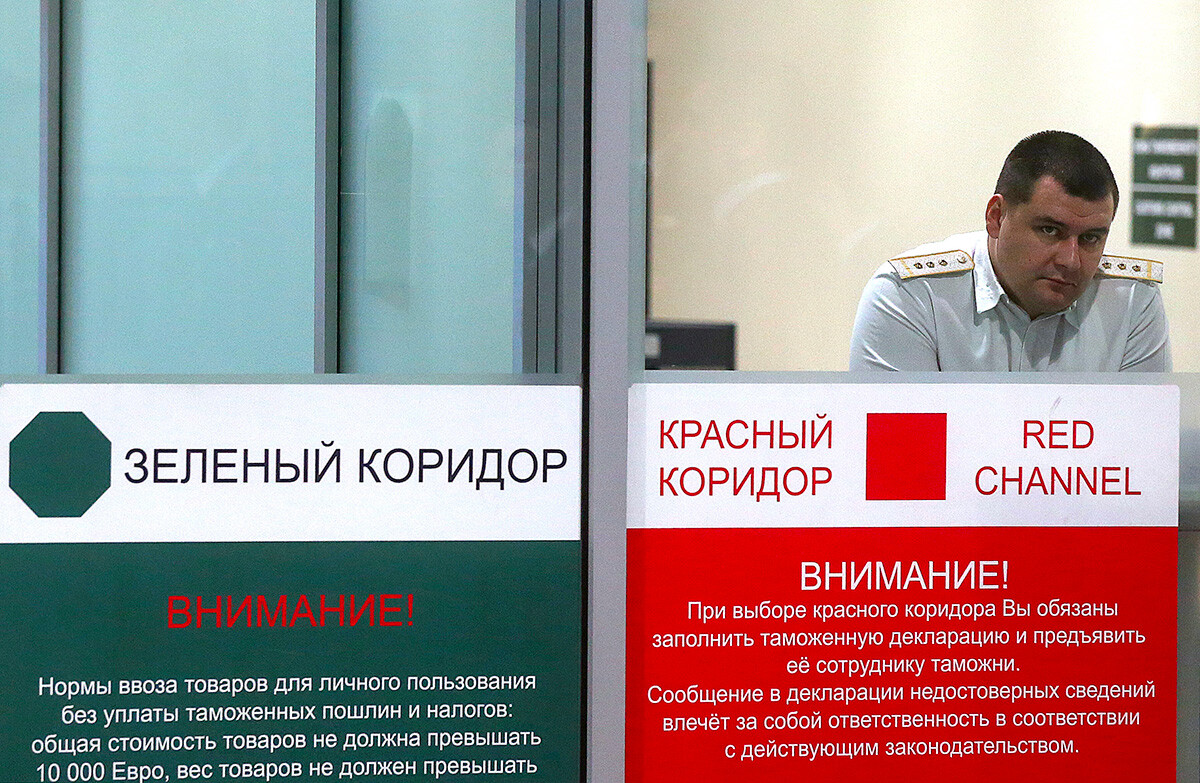
Visa, MasterCard and American Express suspended operations in Russia in 2022, making it impossible to pay with foreign-issued credit cards inside the country. Below are a few legal ways to manage your personal finances easier while in Russia.
One way to bring money to Russia is to physically bring cash with you when you come to the country. Contrary to a popular belief, it is possible to bring any amount of cash into the country, as the Russian government does not limit the inflow of foreign currency.
However, if the amount exceeds $10,000 [in any currency or traveler’s checks], the owner must declare it at Russian customs. The entire amount must be declared, not the amount exceeding 10,000. It is important to note that some countries in the EU may have their own limitations on the amount of Euros one can take to Russia.

Those traveling less frequently would be better off bringing as much cash as possible in advance, as this is the easiest and cheapest way to get money into Russia at the moment.
“I can always bring some cash [from the U.S.] and deposit [it in Russia], but flying back and forth to deposit $10,000 is going to be very expensive, as flying to Moscow is not very cheap,” says David Dawidowicz, a U.S. citizen who regularly travels to Russia.
There is one catch, however. As of today, it is illegal to take foreign currency out of Russia, if the total amount exceeds $10,000 at the exchange rate set by the Central Bank of Russia on the day of the trip. The ban applies to all kinds of foreign currency: U.S. Dollars, Euros, British Pounds, etc. The restriction also applies to traveler’s checks and securities, such as physical bonds. Russian rubles are exempt from the ban.
Note that those individuals who brought foreign currency to Russia and had it declared at Russian customs are entitled to take it out of the country, even if the amount exceeds $10,000, but only if there is a confirmation issued by Russian customs specifying that money was indeed imported by the same person in the first place. It’s paramount to have all the supporting documents when crossing the border with a larger sum as an unlawful attempt to get more than $10,000 out of Russia may constitute a criminal offense that can result in imprisonment.

An officer of the Russian Customs Service in the international arrivals hall of Domodedovo airport.
Sergei Fadeichev/TASSAdditionally, an amount of exported currency exceeding the equivalent of $3,000 must be declared at the customs when leaving Russia. The rule covers the full amount of the exported currency, not just the portion exceeding $3,000.
Foreign citizens can open a bank account in a Russian bank to deposit money they have brought with them.
Depending on the bank, required documents may vary, but, most commonly, the list includes a passport, a notarized translation of its front page, and a Russian phone number.
“We need to obtain a cardholder’s name in cyrillic letters from an official document. A visa will do, because it has a person’s name spelled in cyrillic. If a foreign citizen does not have a visa, he ought to have a notarized translation of the passport,” said an employee of one of Russia’s privately owned banks.

A client in an office of one of Russian banks.
Sergei Savostyanov/TASSDavid said he was not able to open a bank account in a Russian state-owned bank as a U.S. citizen and therefore had to turn to a privately owned bank. However, an employee in one of the branches of the state owned bank told Russia Beyond that there should be no obstacles obstructing a foreigner to open an account in the bank. According to the employee, a citizen of any country can set up a bank account in his name, provided that they present the above-mentioned documents.
Cross-border transfer of funds can be performed via a bank that supports transfers via the SWIFT system. Some Russian banks have been disconnected from SWIFT, but some retained the ability to receive funds from abroad using the system. Whether your local bank offers money transfers to Russia via SWIFT must be determined in each particular case as different banks in various countries can set their own rules regarding this.
Normally, a fixed fee or adjustable commission of 1-5 percent applies. Money transfer via the SWIFT system might take from two to seven days. The maximum amount for transfer can only be capped by the sender’s bank as Russian banks do not place limits on funds coming from abroad.
Note that owners of Russian bank accounts can only withdraw up to $10,000 (or the equivalent in euros), unless they deposited foreign currency before March 9, 2022. The recipients who deposited foreign currency to Russian bank accounts after the date will receive the surplus in rubles.
Some services that offer international money transfers can be used to send money to Russia from abroad. Although Western Union, Wise, MoneyGram and TransferGo all do not support such transfers to or from Russia anymore; however, there are some alternatives available. For example, services like Koronapay, Unistream and Contact can still be used to send money to Russia by people based in most European countries.
There are other, less conspicuous, ways to send money to Russia from abroad that might come handy for foreign citizens in extreme cases.
In case of U.S. citizens in Russia, funds can be wired via the Department of State with the help of a local embassy. However, this option requires contacting the relevant embassy and requesting case-by-case assistance with no guaranteed results.
Cryptocurrency may provide an alternative for international transfer of funds in time when many money transferring systems like Western Union no longer support transfer of funds to Russia. This method requires a degree of technological savvy on part of the sender and the recipient of funds.
Dear readers,
Our website and social media accounts are under threat of being restricted or banned, due to the current circumstances. So, to keep up with our latest content, simply do the following:
If using any of Russia Beyond's content, partly or in full, always provide an active hyperlink to the original material.
Subscribe
to our newsletter!
Get the week's best stories straight to your inbox